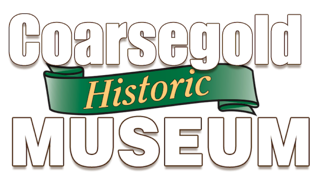The Black Smith Shop was very important to 19th Century outposts and way stations. There normally did not exist a hardware store that was convenient to buy pre-made tools and metal items. The metals that the Black Smiths would work were typically Iron or Steel. Iron was still used for many items made by the BlackSmith since it was easier to work than Steel. Examples are the square nails that were made of Iron that were used in 19th century construction. Other items often were Cattle Branding Irons, and Horse shoes, and simple iron tools.
The Blacksmiths also often found themselves working as a Ferrier. They would often make the Horse Shoes but then also end up shoeing the work horses or mules. A Blacksmith Shop would have been very beneficial to this Freight line stop where metal items could be made to repair the freight wagons and horse shoe replacements on the draft animals.
Blacksmiths Tools
Forge and Bellows
Without the Forge and Bellows the blacksmith would have been unable to heat the Iron hot enough to work it into the item desired. The forge would have coal/charcoal that would be set to burning, it then would use the Bellows to blow air into it to get it to burn at a higher temperature. The Iron or Steel item would then be heated in the Forge until it was red to orange hot and could be worked easily.
Anvil, Tongs and Hammers
The Tongs were used to hold the red/orange hot metal item that would be pounded against an Anvil with a heavy metal hammer. The item would be pounded into a rough shape at first, then go through a cycle of heating till it was red/orange hot, pounded upon for shaping and then submerged into cool water. This cycle would strengthen or temper the iron item being made giving the tool or item greater strength than the original stock iron.
As blacksmith shops evolved they would also have other tools they could obtain from the larger factories back east. Examples we have here at the museum would be the early drill press near the south wall, the large metal vice’s for holding the metal items while they were being worked on, and the stone wheel grinder for sharpening blades or knives.
